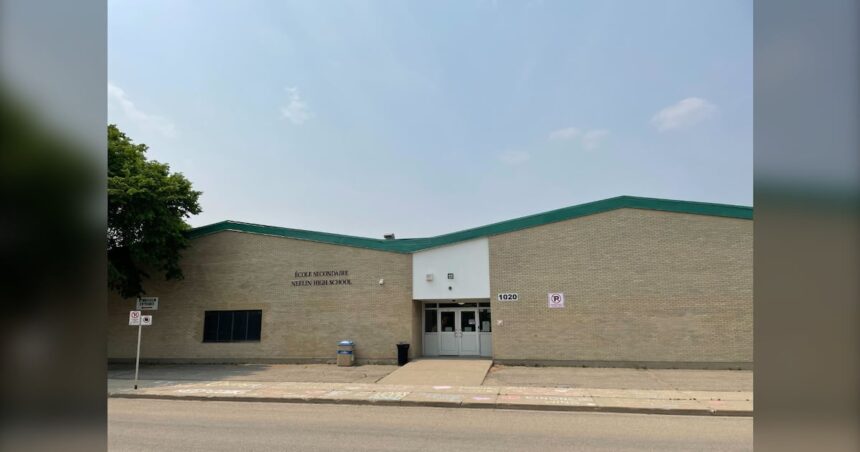The Brandon courtroom fell silent on Thursday as Elijah Phoompichaichon, the 17-year-old accused in last month’s high school sword attack, appeared via video link for a brief but consequential hearing. Judge Shauna McCarthy ordered a 30-day mental health assessment to determine if the teenager was criminally responsible at the time of the shocking violence that rocked the quiet Manitoba community.
“We need to understand the accused’s state of mind before proceeding further,” Judge McCarthy stated, granting the Crown’s application. Phoompichaichon will be transferred to the Manitoba Youth Centre where mental health professionals will evaluate his condition and deliver their findings by early December.
The Crown prosecutor, speaking to reporters afterward, explained that the assessment would help determine “whether the accused was suffering from a mental disorder that rendered him incapable of appreciating the nature and quality of his actions.” This crucial distinction could significantly impact how the case moves forward.
On October 19, normal school activities at Crocus Plains Regional Secondary School transformed into chaos when a masked attacker wielding what witnesses described as a “samurai-style sword” entered the building shortly before noon. Four people suffered injuries before school resource officers subdued the suspect. One teacher remains hospitalized with serious but non-life-threatening injuries.
Dr. Cassandra Braitstein, forensic psychiatrist at the University of Manitoba, told me that youth mental health assessments involve a comprehensive review of background, family history, and psychological testing. “These evaluations look beyond the immediate incident to establish patterns of behavior and thought processes,” she explained. “The goal isn’t just determining competence but understanding if mental illness affected decision-making capacity.”
Defence lawyer Martin Green declined to comment on specific details but emphasized his client’s right to a fair process. “Youth criminal justice cases require special considerations,” Green said. “My client deserves the full protection of the law, including proper evaluation of all factors that may have contributed to this situation.”
I reviewed court documents showing Phoompichaichon faces eight charges including attempted murder, aggravated assault, and possession of a weapon for dangerous purpose. The teenager has remained in custody since his arrest immediately following the attack.
The Brandon School Division has implemented enhanced security measures while offering counseling services to students and staff. Division Superintendent Marc Casavant described ongoing efforts to help the community heal. “Our focus remains on supporting those affected while ensuring our schools provide safe environments for learning,” Casavant said during a community forum last week.
Parents gathered outside the courthouse expressed mixed emotions. “We’re still processing what happened,” said Alicia Fernandez, whose daughter attends Crocus Plains. “There’s anger, confusion, but also concern for everyone involved, including the accused. Something clearly went very wrong here.”
According to Statistics Canada data, violent incidents in Canadian schools have risen 12% over the past five years, though attacks involving weapons remain relatively rare. The Canadian Centre for Justice Statistics reports that approximately 7% of violent school incidents involve weapons, with edged weapons being the most common.
Mental health assessments play an increasingly important role in the youth criminal justice system. The Manitoba Justice Department reports that approximately 60% of youth offenders show evidence of at least one mental health disorder, significantly higher than the general adolescent population.
Dr. Julian Somers, researcher at Simon Fraser University’s Health Sciences program, emphasizes the importance of these assessments. “The youth criminal justice system aims to balance accountability with rehabilitation,” Somers noted. “Understanding mental health factors helps courts make informed decisions about appropriate interventions that protect public safety while addressing underlying issues.”
Court proceedings will resume December 12 when the assessment results are expected. If found criminally responsible, Phoompichaichon could face up to ten years in custody under the Youth Criminal Justice Act for the most serious charges.
Meanwhile, the Brandon community continues its difficult healing process. School principal Mathew Gustafson praised the community’s resilience. “This incident has tested us in unimaginable ways, but I’ve been moved by how people have come together to support each other,” he said.
As Manitoba’s justice system works through this case, mental health advocates emphasize the importance of early intervention. The Canadian Mental Health Association’s Manitoba chapter has called for expanded youth mental health services in the wake of the incident.
“We need to view this tragedy through multiple lenses,” said forensic psychologist Dr. Anne Miller. “Yes, there’s a criminal justice component, but there’s also a mental health dimension, a school safety aspect, and ultimately, a community healing process. Each requires careful attention.”






